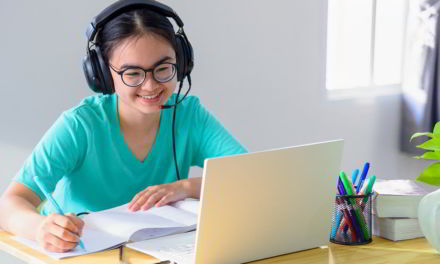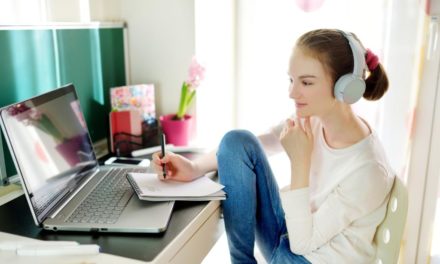The process for school catch up is in full swing as primary and secondary schools reopened their doors.
Schools in England began a phased return to opening at the start of June, with reduced class sizes and social distancing in place.
Since the start of lockdown, schools had remained open to vulnerable children and children of key workers. The rest were asked to learn from home, often without access to a computer, with “no expectations on learning” and it has meant children have fallen 12 months behind.
Here you will find all you need to know about education catch up, the funds available and requirements on learning.
School return: all you need to know
The Government has issued guidelines on the types of measures necessary to ensure safety for teachers and children in the classroom:
Smaller class sizes: Primary school children should not be taught in groups of more than 15 and in secondary schools only a quarter of pupils should be present at any one time.
Regular cleaning: Hand sanitiser should be provided for students and places like desks, chairs and light switches should be regularly cleaned throughout the day.
Sharing resources: The guidelines state that resources must not be shared. Instead schools should provide pupils with their own personal equipment if necessary.
Social distancing: Schools should take steps to keep children two metres apart as much as possible. Measures can include a one-way system and stickers on the floor to indicate two metres.
Limited individuals on site: These measures may include staggered opening times and a ban for parents on the school premises.
Read how to teach through Covid-19.
Digital poverty: the impact of lockdown on children’s education
In April, EDBlog provided information on the scale of digital poverty in the UK.
Digital poverty is defined is the limited access to technology required for online education as a result of inequality in our society.
Up to 70% of children in some schools do not have access to laptops, says Wayne Norrie, head of Greenwood Academies Trust.
Among the issues presented are a lack of internet connection, sharing of a device between siblings and/or parents or a complete lack of a device to undertake the work.
This may be a contributing factor in a lack of completion of schoolwork and reports finding that pupils in one fifth of cases are spending less than an hour per day learning. Though it doesn’t tell the full story.
We do want to see children back at school – because we know how much children grow and benefit through being at school.
What has the Government done to enable learning at home?
In April the Government announced that it would provide laptops to those who need them.
It was up to schools and local authorities to decide which pupils would need them.
Among the beneficiaries are disadvantaged children in Year 10 and children with a social worker.
Education Secretary, Gavin Williamson, said: “By providing young people with these laptops and tablets and enabling schools to access high quality support, we will enable all children to continue learning.”
Free internet access has also been offered, providing support for 10,000 families.
School Standards Minister Nick Gibb said the move “makes sure no child, whatever their background, falls behind as a result of coronavirus.”
For more information on who can receive support, click here.
A lack of engagement from pupils
90% of teachers have said that their pupils are doing less work than they would normally do at this time of year.
Pupils struggling the most are:
- Those with limited access to technology
- Those with limited study space
- Vulnerable children
- Those with special educational needs
- Young carers
Low parental engagement is also having an effect – with 62% of parents in affecting the most deprived schools showing little or no engagement in learning.
Among children eligible for free school means, only 48% were engaged with learning activities.
Online education support for home learning
The Government has published a wide range of online education support for home learning to help parents and students during the coronavirus pandemic.
These resources include English, Maths and PE resources, aswell as tips for home learning.
The plan for school catch up
The Government in England has announced a £1bn fund for school catch up.
This will be a combination of two schemes:
- The most disadvantaged will have access to tutors through a £350m programme over the year from September
- Primary and secondary schools will be given £650m to spend on one-to-one or group tuition for any pupils they think need it
However, there is little detail on where the scheme should be used.
Geoff Barton, General Secretary of the Association of School and College Leaders said:
As ever, we suspect the devil will be in the detail and we await further information.
Is there a catch up plan for the summer?
Schools Minister, Nick Gibb has said there is lee-way for headteachers to set up summer schemes if they wish.
However, there is strong emphasis on making the plan stretch over the next 12 months:
If you want children to catch up, it can’t just be done over the month of August – it has to be done longer term over the academic year.
Can families be fined for not attending school?
Boris Johnson has said that the aim is for schools to reopen to all pupils in September.
Fines for non-attendance are currently not in operation, however the Education Secretary has announced from September “we will be imposing fines on families.”
We do have to get back into compulsory education and fines sit alongside as part of that.
Will schools still have to social distance in September?
Mr Williamson said on Monday that the September return would not rely on social distancing.
It’s not about 1 metre, it’s about 2 metres
This could mean whole classes become “bubbles” separated from other pupils.
EDLounge can support school catch up
EDLounge Group can support your school’s pledge to get students caught up.
With over 11,000 lessons available through our online platform we can support students in KS3 and KS4. You can work with us to produce a tailored learning platform for your students and our system will deliver instant feedback about their strengths and weaknesses.
Skills gap analysis means you and your students can use our online platform to improve skills in specific areas.
At EDLounge we believe in an education for all, and functionality includes suitability for students with dyslexia. We also have audio availability for many of our lessons to suit varying student needs.
Access to highly trained teachers mean that your students have instant access to our highly trained team should they get stuck and for safeguarding purposes.
Safeguarding is the number one priority of EDLounge with a range of alert mechanisms, including eyes-on learning as part of our product.
Plus, we have been inspected by Ofsted. You can read the report here.
A demonstration of our system is available before you order.
For more information on how we can help you and your school call 01909 568 338.









